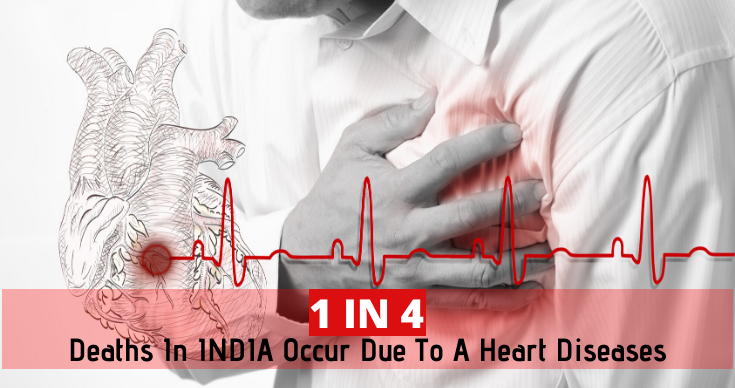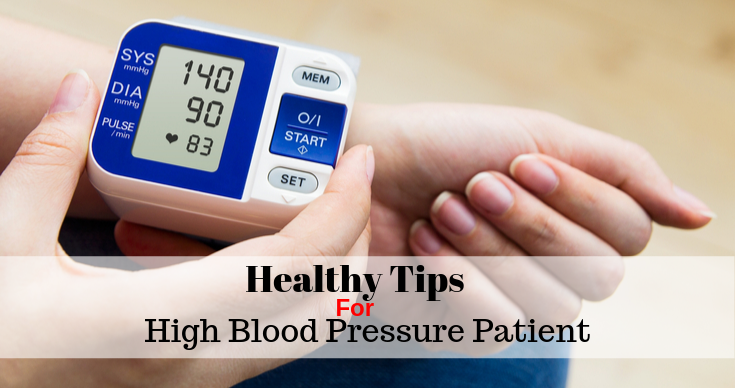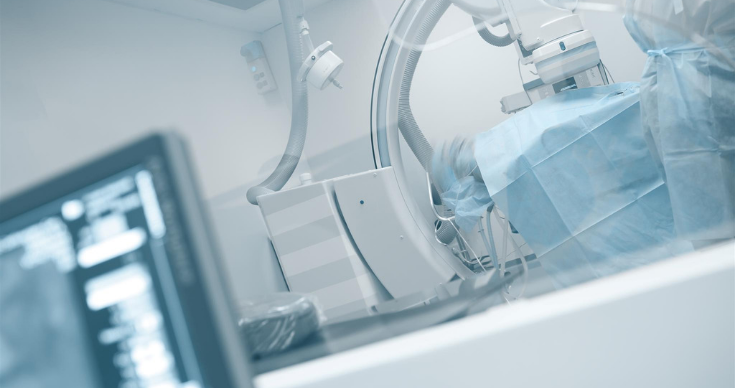Why Are Indians So Vulnerable To Heart Diseases?
We only have one heart and it’s our sole responsibility to take the best care of our heart to make it healthy and keep it in good physical condition. Sadly, there’s an incessant upsurge in heart-related conditions among Indians.
The question that comes to our mind after knowing this fact is why Indians are more susceptible to heart diseases and cardiac emergencies than any other ethnicity? Today, we will talk about 6 reasons why more people are suffering from heart-diseases at an increasing rate in the Indian sub-continent.
1. Chronic stress and hypertension:
Our modern lifestyle is comfortable but stressful. People are constantly stressed about their career, daily commute, personal life and financial conditions. Constant stress is the supreme cause of hypertension or high blood pressure. Healthy blood pressure for an average human is 120/80 mmHg. To manage stress, you should do the following things
– Maintain healthy relationships
– Participate in physical activities
– Eat clean and healthy food
– Get adequate sleep every night
– Practice relaxation techniques.
2. Unhealthy lifestyle choices:
We all know that an unhealthy lifestyle does not benefit our body but still we indulge in them then and now. An unhealthy lifestyle is a lifestyle in which you have harmful habits like smoking, consuming alcohol, eating junk and fast food, and being physically indolent. Take an oath that you would not choose or try to avoid this afore-mentioned lifestyle for yourself.
3. Diabetes:
Diabetes has become a common disease in India and that leads to many cardiovascular diseases. Getting diabetes treatment is paramount as uncontrolled diabetes cause impaired blood vessels of the heart and other vital organs.
4. Obesity:
Indians are getting obese day by day due to various reasons. Many people are suffering from class 3 obesity which can be treated with a bariatric or weight loss surgery.
5. Congenital heart defects:
Many children in India are born with heart abnormalities that lead to serious cardiovascular conditions if not timely diagnosed. It is one of the main factors of increasing heart diseases in our country.
6. Genetic makeup:
Many heart diseases are hereditary and nobody can undo it. Your genetic makeup determines the risk of you or your children inheriting heart-related conditions.
Regrettably, we Indians match the criteria of all the above-mentioned points, and that leads us to be more vulnerable to cardiovascular diseases. If you’ve any heart-related conditions you can easily come to ILS Hospitals, one of the best heart hospitals in Kolkata for your diagnosis and treatment. We will provide you with proper medical advice appropriate for your condition.
Follow These Healthy Tips If You Have High Blood Pressure
High blood pressure is a condition in which the blood produces a lot of pressure in the artery walls, an important component of your blood vessels.
If your blood pressure reading exceeds the normal blood pressure range of 120/80, then you have high blood pressure which requires immediate attention. You can check your blood pressure from any good hospitals in Kolkata or use BP monitoring machines at home. There are many reasons for high blood pressure like:
-
Stress
-
Obesity
-
Poor nutrition
-
Chronic diseases and disorders like diabetes, thyroid, kidney diseases, congenital heart abnormalities etc.
-
Sleep apnea
-
High alcohol consumption
-
High cholesterol
-
Smoking
-
Lack of physical movement
-
Unhealthy lifestyle
-
Old age
High blood pressure is a serious condition so maintaining a healthy blood pressure is important for everyone. If you are suffering from high blood pressure, follow these healthy tips as shown below:
-
Maintain a healthy body weight: Being overweight or obese is linked with high blood pressure. So, do your best to have a healthy BMI (Body Mass Index) by following a healthy lifestyle and by not being either underweight or overweight.
-
Stay active: Participate in regular physical activities to lower your high blood pressure. Do activities like walking, cycling, dancing, swimming, yoga and so on. The more you move, the better it is for your blood pressure.
-
Eat a DASH diet: Have a Dash (Dietary Approaches to Stop Hypertension) diet which is a healthy and balanced diet suitable for people with high blood pressure. The DASH diet includes whole grains, fruits, vegetables, lean meats, fish and poultry, nuts and bean and low-fat dairy or no-fat dairy products, low-sodium content and high vitamins and minerals.
-
Sodium-restricted diet: The less sodium you consume, the more your blood pressure will lower so avoid high-sodium foods and beverages. Also, do not add or sprinkle salt on top of your foods if you have high blood pressure or hypertension.
-
Avoid highly-processed foods: High processed foods have a high sodium-content so do not buy them the next time you visit your grocery store.
-
Quit smoking: Smoking has no health benefits and it is responsible for high blood pressure and heart diseases. So, stop smoking right now.
-
Drink less alcohol: Too much alcohol consumption can raise your already alarming blood pressure. So, limit the amount of alcohol you consume and aim to stop it altogether.
-
Be stress-free: It is needless to say that stress causes your blood pressure to increase at an unhealthy level. Try to avoid stress as much as you can because your life matters more than anything in this world.
-
Get regular high-blood pressure check-ups: Visit the best hospital in Kolkata for your monthly blood pressure check-ups. It is important to keep a tab on your blood pressure readings if you are already suffering from hypertension.
In conclusion, if you follow these healthy tips you will see a difference in your blood pressure levels. If your hypertension still does not improve then it’s time for you to go to a heart specialist or cardiologist to find the underlying cause behind your high levels of blood pressure. We are one of the best heart hospitals in Kolkata.
Possible Reasons For Fast Heartbeat That You Should Watch Out For
Do you often feel anxious due to having a fast heartbeat?
Before you panic assuming it to be a cardiac emergency, take a minute out and breathe. First, you need to know what exactly implies having a fast heartbeat. Heart function is measured in the number of times it beats in a minute. Between 60 to 100 is assumed to be normal and any heart rate above 100 beats/minute is a fast heartbeat or medically termed as tachycardia. As per cardiologists from best heart hospitals, there can be many reasons for the fast heartbeat and today, we will list the most common reasons for the same. So, let us start.
1. You Have A Heart Condition
The most obvious reason for the fast heartbeat is the presence of a heart condition. Let it be an arrhythmia or some medicine you are taking to keep your heart healthy; heart problem often leads to either tachycardia or bradycardia (a condition in which heartbeat is below 60).
2. You Are In Stress
In case you are stressed due to personal or professional issues, it reflects on your health immensely. Stress, anxiety and panic attack can lead to having a racing heart.
3. You Are Physically Exhorting Yourself
In case you are exercising, riding a bicycle or climbing stairs, you are exercising your muscle. These vigorous movements demand more oxygen and the heart has to pump extra beats to meet this demand. As a result, you have a faster heartbeat.
4. You Are Consuming Too Much Caffeine
Caffeine if taken in surplus amount can release adrenaline. So, let it be hot brewing coffee or caffeinated cold beverages, having too much caffeine in your body can make your heart race.
5. You Are Sleep Deprived
It is recommended to have a sleep of 6 to 8 hours, each day. Getting inadequate sleep can cause fatigue and excess adrenalin release, which in turn leads to a faster heartbeat than usual.
6. You Are Down With Cold Or Fever
In case you have a cold, fever, sneezing or coughing, you are likely to have an elevated heart rate as well. When the immune system tries to cope up with mild cold and infection, it works extra hard and thus the heart beats more than usual.
7. You Are Pregnant
In the case of women, being pregnant demands a lot physically as they nurture the growing baby for nine months. Though it is completely normal for pregnant women to have a faster heartbeat, it is crucial to keep tabs on it from time to time.
8. You Have Anemia
Anemia is a condition in which the blood does not carry oxygen properly throughout the body. Thus the heart works much exhaustively to carry oxygen and leads to an uplifted heartbeat.
So, in case you too are having a persistent fast heartbeat, evaluate the reason at the best heart hospitals.
A Brief Introduction To Cardiac Catheterization
The heart is a wonderful organ that performs the crucial function of pumping blood into the body. Sometimes it happens that the functions of the heart get affected due to some illness or defect. Then it requires extensive treatment and accurate diagnosis, which plays an important role in keeping it healthy. Thus, today, we will discuss one particular diagnostic procedure, the cardiac catheterization.
What Is Cardiac Catheterization?
Cardiac catheterization is a diagnostic procedure that is available in many good heart hospitals, to evaluate the working condition of the heart. It can also evaluate the condition of the heart muscle, valves and the coronary arteries along with the pressure and oxygen level of the blood within the arteries. It can also locate the regions where the arteries get narrowed and can also detect birth defects in the heart if any. Moreover, it can collect some tissues from the heart, as a sample for biopsy.
The procedure is carried out in a cardiac catheterization lab or more commonly known as the cath lab. It helps the doctors identify the problems that are present within the heart or its arteries. It also can be used to unclog the blocked arteries.
Medical Procedures That Can Be Done During Cardiac Catheterization?
Several medical procedures can be carried out simultaneously by a cardiologist, during a session of cardiac catheterization. These include a range of procedure to fix a blockage in the heart such as coronary angioplasty, coronary stenting, balloon angioplasty. It is also used to fix any holes present in the heart structure along with repairing /replacing any valve. Procedures like ablation to treat arrhythmia can also be carried out with it.
How Is It Carried Out?
This is a non -invasive diagnostic technique, even though we have mentioned the catheters is pushed through the blood vessel. It is said so because the incisions are not made on or near the heart muscle. A thin, hollow cannula, known as the catheter is inserted through either an artery or vein. Usually, the site for this is the groin, arm or neck. It is then inserted further to reach the heart. This movement is tracked through the x-ray machine that is simultaneously used during cardiac catheterization.
Once the procedure is finished, the catheter and their equipment are retracted back and the incision is stitched closed.
Usually, the procedure is done while the patient is still awake, but they are given some sedatives to help them manage the pain. However, for procedures like valve repairs, and ablation, general anesthesia is administrated. The procedure mostly does not have any complications. Moreover, the recovery is quite fast and thus the patients can return to their home the same day. But, they might be kept under observation for a couple of more days, if the doctors find it necessary. Moreover, there is rarely any chance of developing any long term complication from it.
ILS Hospitals Dum Dum offers advance cath lab services. In case you have been referred to have cardiac catheterization, come straight to ILS Hospitals, one of the best heart hospitals in Kolkata, and get the best treatment from there, by the expert cardiologists.














